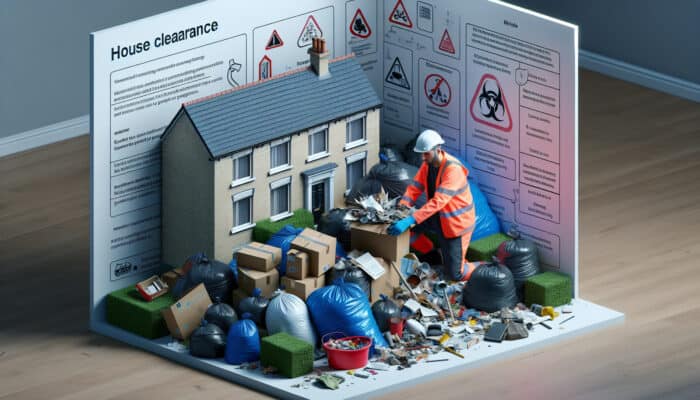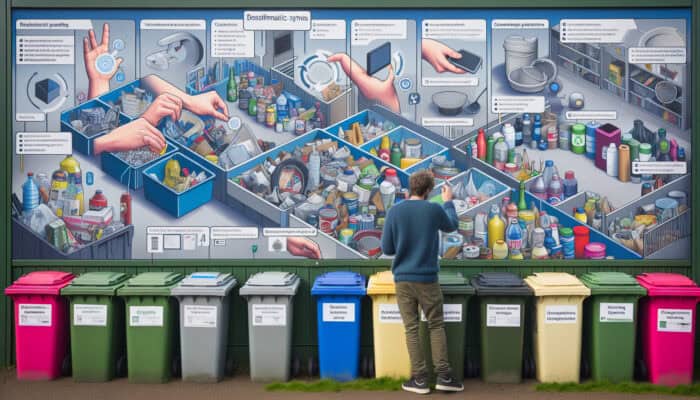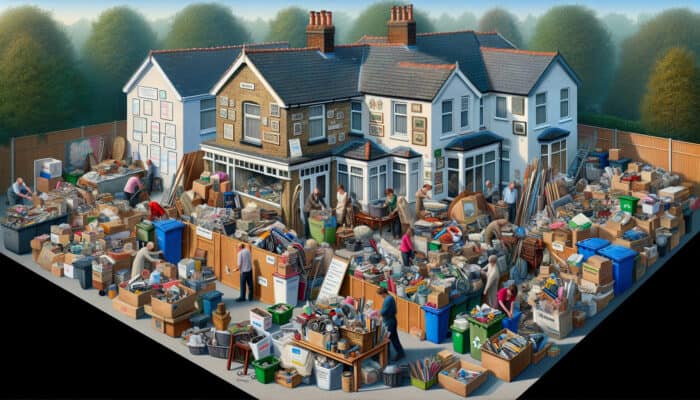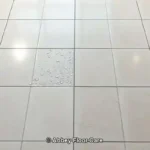Essential Insights on UK House Clearance Regulations for Effective Waste Management
Understanding the Key Legal Obligations for Waste Disposal in the UK

To effectively minimize waste during UK house clearances, it is imperative to possess a comprehensive understanding of the legal framework governing waste disposal. Adhering to these regulations is essential for anyone involved in house clearance activities to prevent incurring hefty fines and facing legal actions. Key regulations that are crucial to follow include:
- Environmental Protection Act 1990
- Waste (England and Wales) Regulations 2011
- Control of Pollution (Amendment) Act 1989
- Hazardous Waste (England and Wales) Regulations 2005
- Duty of Care Regulations
- Local Council Waste Management Policies
- Health and Safety at Work Act 1974
- Landfill (England and Wales) Regulations 2002
These regulations clearly define the responsibilities for waste disposal and ensure that both individuals and businesses manage waste responsibly and in an environmentally friendly manner. Gaining a thorough understanding of these legal obligations is fundamental for any successful house clearance operation.
Effective Strategies for Identifying Hazardous Materials in House Clearances
Recognizing hazardous materials is a vital step in ensuring safe handling and disposal processes during house clearances. Numerous common hazardous substances can be present in UK homes, and identifying these materials is essential to mitigate health risks and prevent legal complications. Common hazardous materials typically found include:
- Asbestos
- Paints and solvents
- Fluorescent light tubes
- Batteries
- Electrical appliances
- Pesticides and herbicides
- Chemical cleaners
- Fuel and oils
Properly identifying and disposing of these hazardous materials is paramount; neglecting to do so can lead to severe penalties and detrimental environmental consequences. Therefore, both homeowners and professionals involved in house clearances must remain vigilant and well-informed regarding the presence of these substances within household items.
Ensuring Compliance with UK Waste Management Licensing Requirements
Having a solid understanding of UK waste management licensing is crucial for ensuring compliance during house clearances. In the UK, anyone involved in the transport, treatment, or disposal of waste must obtain the appropriate licenses to operate legally. The Environment Agency oversees this licensing process and provides guidelines for obtaining the necessary permits. This licensing framework is designed to ensure that waste is managed responsibly, thereby mitigating the risk of illegal dumping. Failing to comply can result in significant penalties or even criminal charges. It is essential to research local licensing requirements, as they can differ greatly among various councils.
Strategies for Complying with Local Council Regulations on Waste Disposal

Adhering to local council regulations is essential for a successful house clearance operation. Each council in the UK has its specific regulations governing waste management, which may encompass designated disposal sites, recycling requirements, and accepted types of waste. To ensure compliance, it is important to:
- Review the local council’s waste management guidelines thoroughly.
- Contact the council directly to clarify any uncertainties you may have regarding waste disposal.
- Utilize local tips and recycling centres effectively for proper waste disposal.
- Schedule collections for bulky items if such services are available in your area.
Following these steps will help avoid penalties and ensure that clearance operations are carried out smoothly, thereby enhancing both community relations and environmental protection efforts.
Best Practices for Documenting House Clearance Activities
Maintaining meticulous records during house clearances is vital for legal protection and effective waste management. Proper documentation serves multiple functions, including verifying compliance with regulations and facilitating potential audits. Effective documentation practices include:
- Keeping a comprehensive inventory of items removed from the property.
- Documenting the disposal methods employed for various types of waste to ensure transparency.
- Collecting receipts from disposal facilities for accountability.
- Maintaining records of any donated items, including acknowledgments from the recipients.
These practices not only protect against legal challenges but also contribute to more efficient clearance operations by providing a clear outline of progress and how waste has been managed throughout the process.
Innovative Approaches for Minimising Waste in UK House Clearances
Exploring the Most Effective Techniques for Waste Reduction

To effectively minimise waste during house clearances in the UK, employing innovative strategies is essential. Successful waste reduction requires a well-balanced combination of planning, community involvement, and practical implementation. For instance, adopting a comprehensive approach that includes pre-clearance assessments can drastically lower waste output. Effective strategies to consider include:
- Conducting a thorough inventory before clearing to identify unnecessary items that can be repurposed.
- Engaging local charities for donations instead of discarding usable items.
- Leveraging community recycling initiatives for various materials, enhancing recycling efforts.
- Encouraging neighbours to participate in shared clearances to maximise reuse opportunities.
Real-world examples demonstrate that households in cities like London and Manchester have successfully reduced landfill contributions by over 30% through targeted donation drives and streamlined recycling efforts, showcasing the effectiveness of these innovative strategies.
Maximising Reuse and Recycling During House Clearances
To maximise reuse and recycling during UK house clearances, strategic planning and the implementation of effective practices are essential. One efficient method is to establish a clear categorisation system for items based on their potential for reuse or recycling. Practical steps include:
- Setting up designated areas for items intended for donation, resale, or recycling.
- Partnering with local recycling firms that specialize in specific materials for enhanced recycling rates.
- Utilising online marketplaces and local Facebook groups to sell or give away items that are no longer needed.
- Educating all participants on what can be recycled versus what must be discarded to ensure compliance.
By following these steps, individuals can significantly enhance their recycling efforts, ensuring that valuable materials are diverted from landfills and reintegrated into circulation, thereby benefiting both the environment and the community.
Engaging Professional Clearance Services for Optimal Waste Management
Utilising professional clearance services can greatly enhance waste minimisation efforts during house clearances. Experienced professionals possess the expertise to categorize and manage waste efficiently, ensuring adherence to all regulatory requirements. Moreover, engaging a professional service offers several advantages, including:
- Access to specialised knowledge regarding local regulations and best waste management practices.
- A network of contacts for donation and recycling, maximising diversion from landfills.
- Time-saving efficiencies due to their training and experience in waste management.
- Enhanced safety during the clearance process, especially when dealing with hazardous materials.
Investing in professional services typically yields significant benefits, not only in terms of operational efficiency but also in the assurance that the clearance is conducted responsibly and sustainably.
Practical Tips for Minimising Waste in UK House Clearances
Identifying Items Suitable for Donation or Resale
Identifying items that can be donated or sold is a crucial step in minimising waste during UK house clearances. Many households often overlook the potential value of their unwanted possessions. Possible items for donation or resale include:
- Clothing and footwear that are still in good condition and can be reused.
- Furniture that is no longer needed but is still functional.
- Books, CDs, and DVDs that can find new owners.
- Electronics such as TVs and computers that are still operational.
- Kitchenware and utensils that are in working order.
- Toys and games that can be enjoyed by other children.
- Garden tools and equipment that are still useful.
- Collectables and antiques that may have significant value.
By targeting these items for donation or sale, households can substantially reduce waste while benefiting local charities and ensuring that reusable goods find new homes, contributing positively to their community.
Efficiently Sorting and Categorising Belongings During Clearances
Efficiently sorting and categorising items during a house clearance can streamline the process and significantly reduce waste. A systematic approach involves dividing belongings into clear categories, such as keep, donate, recycle, and dispose. This method not only clarifies decision-making processes but also helps in managing emotional attachments to items. Implementing a sorting system based on:
- Sentimental value — what truly matters to you?
- Condition of the item — is it functional or sellable?
- Market value — can it be sold or donated?
- Environmental impact — what can be recycled or reused?
By adhering to these criteria, individuals can ensure that the clearance is both efficient and environmentally responsible, thereby significantly reducing unnecessary waste throughout the entire process.
How to Plan a Waste-Minimising Clearance Effectively
Planning is essential for effectively minimising waste during house clearances. An organised approach not only streamlines the process but also enhances overall efficiency. To successfully plan a waste-minimising clearance, one should:
- Create a detailed timeline for the clearance process, outlining each step.
- Assess the space and develop a clear strategy for item categorisation.
- Engage local charities and recycling centres beforehand to arrange pick-ups or drop-offs.
- Inform family members or flatmates about the plan to ensure their cooperation and understanding.
Adopting this level of preparedness ensures that the clearance is executed smoothly, reducing the likelihood of waste and promoting sustainable practices throughout the entire operation.
Exploring Eco-Friendly Disposal Options for Remaining Waste
Investigating eco-friendly disposal methods is crucial for minimising environmental impact during UK house clearances. Not everything can be donated or recycled, so understanding how to responsibly dispose of residual waste is critical. Eco-friendly options include:
- Utilising local recycling centres that accept various materials for proper disposal.
- Employing services that specialise in eco-friendly waste disposal to ensure responsible handling.
- Participating in community clean-up days to properly dispose of waste in a collective effort.
- Investigating composting options for organic waste, contributing to soil health.
By adopting these eco-friendly disposal methods, individuals can significantly reduce their carbon footprint and contribute positively to the environment, ensuring that even non-reusable items are discarded responsibly and sustainably.
The Significant Environmental Benefits of Minimising Waste
How Reducing Landfill Usage Impacts the Environment
Minimising waste during house clearances plays a pivotal role in decreasing landfill usage, which is one of the most pressing environmental issues facing the UK today. Each year, millions of tonnes of waste are sent to landfills, contributing to soil and water pollution. By focusing on waste reduction strategies, individuals can:
- Decrease the volume of waste sent to landfills, protecting the environment.
- Extend the lifespan of existing landfill sites, reducing the need for new landfills.
- Promote better waste management practices within local communities.
- Support initiatives aimed at reducing landfill dependency, fostering a culture of sustainability.
The positive impact of these actions benefits not only the environment but also fosters a culture of sustainability that resonates across communities and generations, encouraging responsible waste management practices.
Understanding the Impact of Waste Minimisation on Carbon Emissions
Minimising waste in UK house clearances significantly contributes to lowering carbon emissions, aligning with broader environmental sustainability efforts. Each item that is reused or recycled reduces the demand for new production, which is often a carbon-intensive process. Strategies to effectively reduce carbon emissions include:
- Opting for recycling over disposal to lessen emissions associated with waste processing.
- Encouraging the reuse of items to diminish manufacturing emissions.
- Choosing eco-friendly disposal methods that produce fewer emissions and environmental impact.
- Investing in renewable energy sources for waste processing facilities, promoting green energy.
By focusing on waste minimisation, households not only contribute to reducing their carbon footprints but also foster a collective movement towards more environmentally responsible behaviours, benefiting future generations.
Supporting a Circular Economy Through Waste Minimisation Efforts
Minimising waste during house clearances reinforces the principles of a circular economy, where resources are reused and recycled rather than disposed of. This economic model benefits both the environment and the economy by ensuring that products and materials retain their value for as long as possible. Key components of this approach include:
- Encouraging local businesses that embrace sustainable practices and waste reduction.
- Facilitating community-sharing initiatives that extend the life of products through reuse.
- Advocating for policies that prioritise recycling and waste reduction efforts in communities.
- Supporting educational initiatives that raise awareness about circular economy principles and their benefits.
By promoting a circular economy, communities can effectively minimise their environmental impact, foster innovative ideas for reuse, and create sustainable economic growth that benefits all societal members.
Enhancing Biodiversity Through Waste Reduction Initiatives
Minimising waste has a positive influence on biodiversity by preserving natural habitats and reducing pollution. The degradation of ecosystems often stems from the expansion of landfills and waste processing facilities. By reducing waste during house clearances, individuals can:
- Protect vital ecosystems from landfill encroachment and habitat loss.
- Support wildlife by reducing pollution in natural habitats.
- Contribute to cleaner air and water through the implementation of effective waste management practices.
- Engage in local conservation initiatives that promote biodiversity and environmental health.
These actions are essential for maintaining the delicate balance of ecosystems, ensuring that various species thrive and that natural resources remain available for future generations, ultimately fostering a sustainable coexistence.
Research-Driven Insights on the Advantages of Minimising Waste in UK House Clearances
Recent Research Findings on Waste Reduction Benefits
Research consistently highlights that waste reduction during UK house clearances yields numerous advantages. Studies indicate that effective waste minimisation can significantly decrease costs associated with waste management and disposal. Households implementing robust recycling programs often experience a reduction in overall waste disposal fees. This trend is backed by real-world examples showing that comprehensive waste management strategies can lead to reductions of up to 50% in waste sent to landfills. Additionally, these practices positively influence community engagement and environmental awareness, fostering a culture of sustainability.
Economic Benefits of Implementing Waste Minimisation Strategies
Minimising waste offers substantial economic benefits, including cost savings and potential revenue from resale of items. By diverting waste from landfills and embracing recycling, households can lower their disposal costs. Furthermore, selling reusable items can generate funds that can be reinvested into other household needs. Key economic advantages include:
- Reducing landfill costs, which can be significant in urban areas.
- Generating income through resale platforms and charitable donations.
- Lowering the cost of purchasing new items by utilising reusable goods.
- Encouraging local economic growth through support for second-hand shops and charities.
These economic incentives not only benefit individuals but also contribute to a more sustainable local economy, fostering community resilience and growth.
The Influence of Waste Minimisation on Property Value
Minimising waste during house clearances can have a positive effect on property value in the UK. Properties that demonstrate sustainable practices tend to attract environmentally conscious buyers. Effective waste minimisation strategies can lead to a more aesthetically pleasing environment and enhance the property’s overall appeal. Benefits include:
- A cleaner, more organised appearance that enhances curb appeal and buyer interest.
- Reduced environmental impact that attracts eco-friendly buyers who value sustainability.
- Potential cost savings on future waste management for new owners.
- Enhanced marketability through demonstrated sustainable practices and responsible waste management.
As sustainability becomes a key consideration for potential buyers, properties that reflect a commitment to waste minimisation may experience increased demand and higher selling prices, ultimately benefiting sellers in the real estate market.
Utilising Technology to Assist in Waste Minimisation During Clearances
Innovative Apps and Tools Available for House Clearances
Technology plays a pivotal role in minimizing waste during UK house clearances. Various apps and tools are available that streamline the clearance process and enhance waste management efforts. Notable examples include:
- Freecycle: A platform for giving away reusable items to those in need, promoting community sharing.
- Facebook Marketplace: An easy way to sell unwanted items locally, connecting buyers and sellers efficiently.
- Recycle Now: A resource for finding local recycling options and guidelines to facilitate better waste disposal.
- Decluttr: An app for selling unwanted electronics and media, promoting reuse and recycling.
These tools not only facilitate the clearance process but also promote a culture of sustainability by encouraging reuse and recycling among community members, fostering a shared responsibility towards effective waste management.
Utilising Technology for Efficient Inventory Management
Employing technology for inventory management can significantly enhance the efficiency of house clearances. Digital solutions enable individuals to track items accurately, categorise them effectively, and even facilitate their resale or donation. By utilizing inventory management systems, one can:
- Record items digitally to prevent loss and confusion during clearances.
- Utilise barcodes or QR codes to streamline tracking of belongings and manage inventory effectively.
- Share inventory lists with charities or potential buyers for easy access and transparency.
- Monitor disposal methods and ensure compliance with local regulations and best practices.
Incorporating technology into this process not only aids in minimising waste but also enhances the overall organisation of house clearances, making the operation smoother and more effective.
Digital Solutions for Effective Waste Tracking
Digital tools for waste tracking are essential for ensuring compliance and efficiency during house clearances. These solutions offer a systematic approach to monitoring waste disposal and recycling efforts. Key benefits include:
- Real-time tracking of waste disposal methods and volumes, ensuring accountability.
- Reporting capabilities that facilitate compliance with local regulations and standards.
- Data analysis to identify trends and opportunities for improved waste management strategies.
- Integration with local recycling initiatives for better resource management and community collaboration.
By employing digital solutions for waste tracking, individuals can ensure that their house clearances are conducted responsibly, optimising both legal compliance and environmental impact, thereby enhancing community sustainability efforts.
Community and Government Support for Effective Waste Minimisation
Local Initiatives to Support Waste Reduction Efforts
Local communities across the UK are increasingly engaging in initiatives that support waste minimisation during house clearances. Many councils have launched programmes aimed at encouraging residents to reduce waste effectively. Examples of such initiatives include:
- Community swap events for exchanging items, promoting reuse and reducing waste.
- Local recycling drives that offer special collection days for residents.
- Workshops on decluttering and sustainable living practices.
- Collaborations with charities for donation collections, facilitating community support.
These initiatives not only promote waste reduction but also foster a sense of community, encouraging residents to collaborate towards common sustainability goals, thus enhancing local engagement and responsibility.
Government Programs and Incentives for Waste Minimisation
The UK government has developed various programmes and incentives aimed at promoting waste minimisation. These initiatives provide financial support, resources, and educational materials to assist individuals and organisations in their efforts. Notable programs include:
- Grants for community-based recycling projects that foster local sustainability.
- Tax incentives for businesses that adopt sustainable practices and waste reduction strategies.
- Public awareness campaigns promoting recycling and waste reduction initiatives.
- Support for local councils in developing effective waste management strategies and policies.
These government initiatives are essential in creating an environment where waste minimisation is actively encouraged and supported through tangible resources and funding, bolstering community resilience and sustainability.
Collaborative Community Approaches to Effective Waste Management
Collaboration within communities is vital for effective waste management during house clearances. Local groups can work together to share resources, knowledge, and best practices. Effective collaborative approaches include:
- Establishing community task forces focused on waste reduction and sustainability.
- Creating local networks for sharing tools and resources among residents.
- Organising regular clean-up events to engage residents in community efforts.
- Developing educational programmes to raise awareness about waste minimisation and responsible practices.
Through collaboration, communities can harness collective knowledge and resources, resulting in more effective waste management practices and a greater overall impact, fostering a culture of sustainability and environmental stewardship.
Active Participation of Residents in Waste Minimisation Programs
Residents can actively engage in local and national waste minimisation efforts during house clearances in several meaningful ways. Participating in these programmes fosters a culture of sustainability and collective responsibility. Key participation strategies include:
- Joining local recycling initiatives and volunteer groups dedicated to waste reduction.
- Attending workshops focused on sustainable living and waste management practices.
- Engaging with local charities to facilitate donation collections and community support.
- Advocating for better waste management practices within local councils to improve community policies.
By taking these steps, residents contribute to the larger goal of waste minimisation, creating a more sustainable future for themselves and their communities, and promoting responsible stewardship of resources.
The Impact of Educational Campaigns in Promoting Waste Reduction
Educational campaigns play a crucial role in raising awareness and encouraging waste minimisation practices among UK communities. These initiatives can take various forms, including:
- Workshops and seminars on effective waste management strategies and sustainable living.
- Social media campaigns highlighting successful local waste reduction stories and initiatives.
- Collaborations with schools to teach children about sustainability and responsible waste practices.
- Distribution of informative materials on recycling and waste management to educate residents.
By promoting education on waste reduction, communities can empower individuals with the knowledge and tools needed to make informed, sustainable decisions, leading to long-lasting, positive impacts for the environment and community health.
Common Questions and Answers About Waste Minimisation
What is the concept of waste minimisation?
Waste minimisation refers to strategies aimed at reducing the total amount of waste produced during various activities, particularly in house clearances, by promoting reuse, recycling, and responsible disposal methods.
How can I find a trustworthy clearance service?
To find a reliable clearance service, check online reviews, seek recommendations from friends and family, and confirm that the company is licensed and insured for effective waste management.
What are the potential consequences of illegal dumping?
Engaging in illegal dumping can lead to hefty fines, legal repercussions, and significant environmental damage, making it crucial to adhere to all waste disposal regulations and guidelines.
Can all types of electronic items be recycled?
Not all electronic items are recyclable. It is essential to consult with local recycling centres to determine which items they accept and their specific disposal guidelines to ensure compliance.
What should I do with hazardous materials during clearances?
Hazardous materials must be identified and disposed of through specialized facilities equipped to handle them safely. Contact local council services for appropriate guidance and resources for safe disposal.
How can I effectively donate items during a clearance?
To effectively donate items, ensure that they are clean and in good condition. Research local charities that accept donations and arrange for pick-up or drop-off as necessary to facilitate the process.
What is the role of local councils in waste management?
Local councils are responsible for implementing waste management policies, providing recycling services, and educating residents about proper waste disposal methods to ensure community compliance and environmental sustainability.
Why is education critical in waste minimisation efforts?
Education raises awareness about the significance of waste minimisation, empowering individuals to make informed choices and adopt sustainable practices in their daily lives, thus promoting a culture of responsibility and environmental stewardship.
How can technology assist in reducing waste during clearances?
Technology supports waste reduction by providing tools for inventory management, tracking waste disposal, and connecting individuals with recycling and donation resources efficiently, enhancing overall effectiveness.
What are the advantages of recycling?
Recycling conserves natural resources, decreases landfill waste, reduces carbon emissions, and often creates economic opportunities through the resale of recycled materials, benefiting both the environment and the economy.
Connect with us on Facebook!
The Article: Minimising Waste in UK House Clearances: A Guide Was First Found At https://birminghamhouseclearance.com
The Article Minimising Waste in House Clearances Across the UK Was Found On https://limitsofstrategy.com

